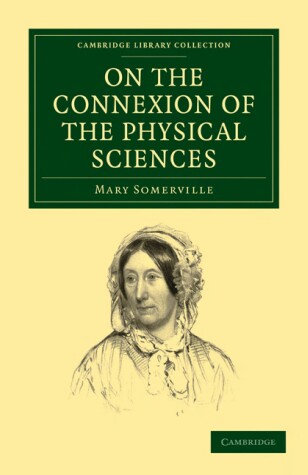Cambridge Library Collection - Physical Sciences
2 total works
Mary Somerville (1780–1872) would have been a remarkable woman in any age, but as an acknowledged leading mathematician and astronomer at a time when the education of most women was extremely restricted, her achievement was extraordinary. Laplace famously told her that 'There have been only three women who have understood me. These are yourself, Mrs Somerville, Caroline Herschel and a Mrs Greig of whom I know nothing.' Mary Somerville was in fact Mrs Greig. After (as she herself said) translating Laplace's work 'from algebra into common language', she wrote On the Connexion of the Physical Sciences (1834). Her intention was to demonstrate the remarkable tendency of modern scientific discoveries 'to simplify the laws of nature, and to unite detached branches by general principles.' This and her next book, the two-volume Physical Geography, also reissued in this series, were enormously influential both within the scientific community and beyond.
These Personal Recollections contain the memoirs and a selection of the correspondence of the nineteenth-century polymath Mary Somerville (1780-1872). The book was first published in 1873, a year after Mary's death, by her daughter Martha, who wrote brief introductions to the text. Mary Somerville is best known for her pioneering scientific publications which include her translation of Laplace's Mecanique Celeste (1831: also resissued in this series); On the Connection of the Physical Sciences (1834); Physical Geography (1848); and On Molecular and Microscopic Science (1869). Through these publications, Somerville made a lasting contribution to the dissemination of scientific knowledge. Somerville's correspondence deals primarily with her public life, while the memoirs offer insight into her private sphere: the discouragement she faced in pursuit of learning; her passion for women's education and suffrage; family life; and personal faith. Her story is compelling, and her experiences may resonate with many women today.

